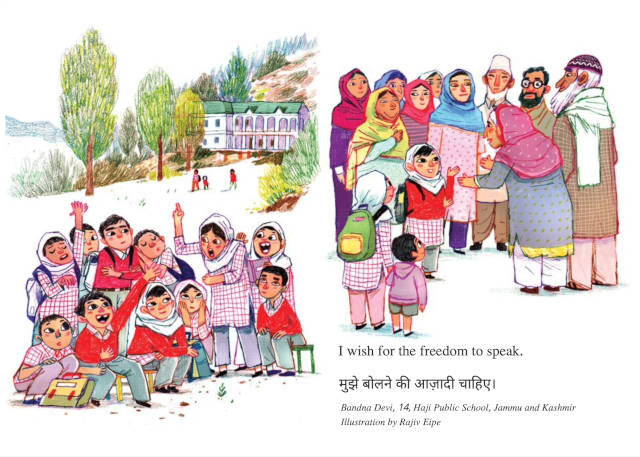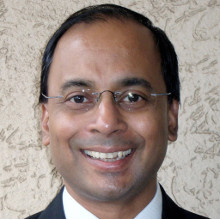[Photo by Greg Rakozy on Unsplash]
One of my responses to the Covid-19 pandemic was to set myself this daily reminder: “Be positive. Be kind. Be helpful.” My goal has been to achieve all three every day, but I haven’t always succeeded.
The pandemic has tested leaders and citizens everywhere like little else, and has revealed both the difference, and the impact, good leaders and citizens can make, as well as the terrible harm that bad ones inflict.
Leadership
The true test of a leader is how she responds in a crisis. It is wonderful see how some take the maxim ‘Don’t waste a good crisis’ to heart and lead with clarity, compassion and authenticity.
The CEO of the non-profit SNEHA, Vanessa D’Souza, is one such leader who developed a new rule-book to turn the pandemic crisis into an opportunity to double-down on their mission.
She also took time to reflect on the process of navigating the crisis, and shared the leadership lessons learnt in working with a diverse set of stakeholders, leading and motivating teams, as well as managing the head-heart balance.
As Vanessa points out in her article, “Crisis moments create opportunities and help us seek clarity and find direction. They ignite our creativity, push us to our limits and force us to think outside the norm. By and large, it has brought out the best in leaders. Pushed to their limits, leaders have emerged wiser, more resilient and more compassionate. Real leadership is leaders recognising that they serve the people they lead. They are centred, grounded, and comfortable with their values, who they are, and how they present themselves. This is the place from which they will always make their best decisions and be of most service to others in troubled times or otherwise.”
You can read the full article here. (Disclosure: I am a trustee of SNEHA)
Journalist Thomas Friedman wrote about his conversation with Dov Seidman on the need for great leadership, and what it looks like.
Seidman is the author of How, and founder and chairman of How Institute for Society, which promotes values-based leadership.
Here are a couple of extracts from the article that underline the importance of truth, trust, hope and humility:
TF: It’s not easy leading anything today, but what do the best leaders have in common?
DS: Great leaders trust people with the truth. And they make hard decisions guided by values and principles, not just politics, popularity or short-term profits. Great leaders understand that when so many vulnerable and scared people are so willing, so quickly, to put their livelihoods and even their lives in their leaders’ hands, and make sacrifices asked of them, they expect the truth and nothing but the truth in return. Leaders who trust people with the truth are trusted more in return. But you better not betray my trust—by not telling me the truth—when I have literally put my life in your hands.
The leaders we will remember from this crisis are those who put more shared truth into our world, not muddied it. And those who put more trust into our world and not eroded it.
In my view, trust is the only legal performance-enhancing drug. Whenever there is more trust in a company, country or community, good things happen.
TF: Some of our leaders today talk as if people want only good news and optimism to calm their fears.
DS: The true antidote to fear is hope, not optimism. Hope comes from seeing your leader lead in a way that brings out the best in people by inspiring collaboration, common purpose and future possibilities. It takes hope to overcome great fear and meet great challenges. People do, of course, appreciate good news and optimism from their leaders, but only if it’s grounded in reality, facts and data.
TF: I once asked you what you thought was Nelson Mandela’s greatest leadership attribute, and you said “humility.” Why?
DS: In addition to truth and hope, what people actually want in a leader, even a charismatic one, is humility. I feel more certain in the face of uncertainty when a leader says to me, “I don’t know, but here are the wise experts I am going to turn to for answers, and here is how we are going to hunt for the answers together.” The more I hear Dr. Fauci say that he does not know something, the more closely I listen to him discuss what he is sure of.
Humble leaders actually make themselves smaller than the moment. They know that they alone cannot fix everything. So they create the space for others to join them and to rise to do big things — together.
Here is the link to the article.
Inequality
The immense loss of lives, suffering and despair caused by the pandemic was exacerbated by the ineffective responses of most governments. Despite the lack of preparation, vital supplies and inadequate infrastructure, the poorly equipped healthcare professionals and frontline workers risked their lives every day and achieved miracles. It was heartening to see how civil society and caring citizens came forward to mitigate the suffering, and provide vital aid to those in need through philanthropy and volunteering.
In India, the pandemic-induced lockdown severely impacted the lives and livelihoods of daily wage earners, migrant workers and other marginalised sections of the population. The inequalities and fault-lines in Indian society were harshly revealed by the pandemic, taking me back to Harsh Mander’s compelling book Looking Away: Inequality, Prejudice and Indifference in New India.
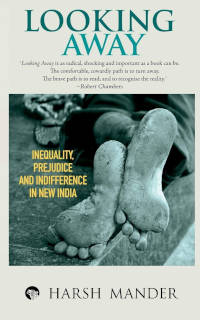
Questions
What matters most now?, is the question that the pandemic has brought to the forefront.
Daniel Friedland, author of Leading Well from Within (which focuses on the science of practice of Conscious Leadership) was diagnosed with stage four brain cancer in November 2020.
In his conversation with entrepreneur and author Chip Conley on ‘Death as an Organizing Principle for Life’ he emphasises that “The questions you ask at your inflection point is the difference between entering a world of pain and suffering or one of flourishing abundance.” He adds, “Live your life with appreciation, making every moment count”.
Coach Marshall Goldsmith urges us to pose the following six questions daily:
Did I do my best to:
- Set clear goals?
- Make progress toward goal achievement?
- Be happy?
- Find meaning?
- Build positive relationships?
- Be fully engaged?
You can read more about this in his book Triggers: Creating Behaviour That Lasts and in his article: Questions That Make A Difference: The Daily Question Process
Here is Goldsmith’s short video on The 6 Daily Questions:
Success
Patrick O’Shaughnessy emphasises the importance of ‘growth without goals’ by focusing on habits and practices that are important to do every day, with long-term success a by-product. Here is the link to his article: Growth without Goals
Here’s a thoughtful post by Patricia Mou in which she explores the question: ‘What is my definition of my success and how has it evolved?’ Here’s an excerpt:
“What is my happiness? I’m still figuring it out. But I no longer measure it in terms of levels jumped, zeros added to my pay stub, the hype of the company/field, or the number of people I manage. I’ve begun to measure it in what my days look like and the consistency and quality of my creative expression:
- Am I working on a product that is helping others?
- Is a majority of what I do energizing or draining?
- Do I have time to write? Can I say what I think?
- Am I free to invest in my personal development or side projects?
- Do I direct most of my schedule or does my schedule direct me?
- Do I have time to be present with people I love and admire?”
Happiness
In his popular TED Talk, psychiatrist and psychoanalyst Robert Waldinger shares the key lesson from the longest study on happiness: Good relationships keep us happier and healthier.
He explains the three big lessons about relationships. The first, that social connections are really good for us, and that loneliness kills. People who are more socially connected to family, to friends, to community, are happier, they're physically healthier, and they live longer than people who are less well connected.
The second is that it’s not just the number of friends you have, and it’s not whether or not you're in a committed relationship, but the quality of your close relationships that matters.
The third big lesson is that good relationships don't just protect our bodies, they protect our brains.
You can listen to the full talk here:
I am a fan of Tim Urban. His incredible essays with his unique illustrations are a must-read. His essay, The Tail End, is about the time we have, and what matters—something the pandemic has clarified. Here are his three key insights from it:
- Living in the same place as the people you love matters. I probably have 10X the time left with the people who live in my city as I do with the people who live somewhere else.
- Priorities matter. Your remaining face time with any person depends largely on where that person falls on your list of life priorities. Make sure this list is set by you—not by unconscious inertia.
- Quality time matters. If you’re in your last 10% of time with someone you love, keep that fact in the front of your mind when you’re with them and treat that time as what it actually is: precious.
Do read it here.
Thinking
In his recent insightful essay on How to Think for Yourself, writer, investor and programmer Paul Graham distinguishes work that needs independent thinking from those that don’t.
He states that independent-mindedness has three components: fastidiousness about truth, resistance to being told what to think, and curiosity, and examines each of them.
Do read the full essay.
First principles thinker, entrepreneur and investor Naval Ravikant has shared his insights and wisdom over the years through tweet-storms, podcasts and blogposts. His tweet-storms are succinct and insightful, filled with nuggets of wisdom, to reflect, and act upon.
Eric Jorgenson has collected and organised these in the book Almanack Of Naval Ravikant with Illustrations by Jack Butcher. This is a book to read, and re-read; the PDF version can be downloaded for free here.
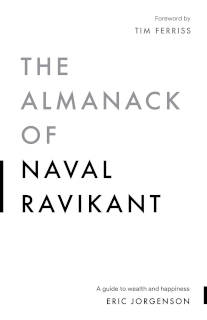
Here is another insightful essay by Tim Urban: The Thinking Ladder on ‘why do we believe what we believe’, how we think, thinking like a scientist, sports fan, attorney and more. Not to be missed.
Kindness
‘What I regret most in my life are failures of kindness.’ This was the heart of the commencement address of author George Saunders to the 2013 graduating class of Syracuse University.
He adds, ‘Do all the other things, the ambitious things—travel, get rich, get famous, innovate, lead, fall in love, make and lose fortunes, swim naked in wild jungle rivers (after first having it tested for monkey poop)—but as you do, to the extent that you can, err in the direction of kindness.’
You can read the full text here.
Author Marta Zaraska writes about ‘Why being kind to others is good for your health’.
For instance: ‘Studies show that volunteering correlates with a 24% lower risk of early death—about the same as eating six or more servings of fruits and vegetables each day, according to some studies. What’s more, volunteers have a lower risk of high blood glucose, and a lower risk of the inflammation levels connected to heart disease. They also spend 38% fewer nights in hospitals than people who shy from involvement in charities.’
You can read the full article here.
Gratitude
‘I think it’s important to remind yourself that the things you do each day are not burdens, they are opportunities’, writes James Clear in his bestselling book Atomic Habits.
He continues: ‘I once heard a story about a man who uses a wheelchair. When asked if it was difficult being confined, he responded, “I’m not confined to my wheelchair—I am liberated by it. If it wasn’t for my wheelchair, I would be bed-bound and never able to leave my house.” This shift in perspective completely transformed how he lived each day.’
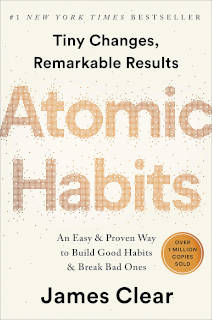
You can read the article here.
‘When we express gratitude and receive the same, our brain releases dopamine and serotonin, the two crucial neurotransmitters responsible for our emotions, and they make us feel ‘good’', writes psychologist Madhuleena Roy Chowdhury.
You can read more about The Neuroscience of Gratitude and How It Affects Anxiety & Grief.
Immanuel Kant's rules for happiness are: ‘something to do, someone to love and something to hope for.’
I have been greatly privileged with all three and would like to express my deep gratitude for my family, friends, colleagues, meaningful work, as well as the many opportunities to learn.
Renewal
Former US Secretary of Health, Education, and Welfare, John Gardner, gave a speech on Personal Renewal to McKinsey in 1990. I reread it for its timeless wisdom about life, failure, renewal, meaning and more.
“Meaning is not something you stumble across, like the answer to a riddle or the prize in a treasure hunt. Meaning is something you build into your life. You build it out of your own past, out of your affections and loyalties, out of the experience of humankind as it is passed on to you, out of your own talent and understanding, out of the things you believe in, out of the things and people you love, out of the values for which you are willing to sacrifice something. The ingredients are there. You are the only one who can put them together into that unique pattern that will be your life. Let it be a life that has dignity and meaning for you. If it does, then the particular balance of success or failure is of less account.”
Here’s the full speech.
Hope
Catastrophes bring out the best in humanity; we have seen this time and again in the way people of all kinds, all over, have responded with kindness, compassion and generosity to those in need during the pandemic. Are humans inherently decent? Our mistrust of strangers, of those who don’t look like us, or behave like us, seems to suggest that we believe otherwise.
Historian Rutger Bregman’s book Humankind: A Hopeful History is based on the idea ‘that most people, deep down, are pretty decent’, and is illustrated with many compelling, verifiable references. Yuval Noah Harari says: ‘Humankind challenged me and made me see humanity from a fresh perspective’.
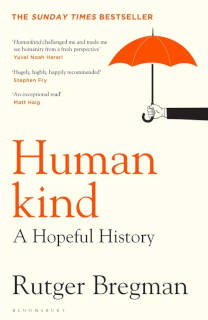
As we begin a new year, we would do well to begin with this understanding of humanity. Of being positive, kind and helpful.
I Wish
In closing, I would like to share the link to a beautiful book I Wish.
The non-profit publisher, Pratham Books, (Disclosure: I am a trustee) asked children across India to share their wishes. Answers poured in, in many languages, and many voices. Some of India’s beloved illustrators turned their wishes into this beautiful book.
In the book’s introduction, economist and Nobel-prize winner Esther Duflo, and Rukmini Banerji, CEO of Pratham Education Foundation, remind us how books can change lives. And just like hope, that enduring feeling behind our wishes, books are powerful.
Here is page from the book, with a wish by Bandna Devi, 14.
